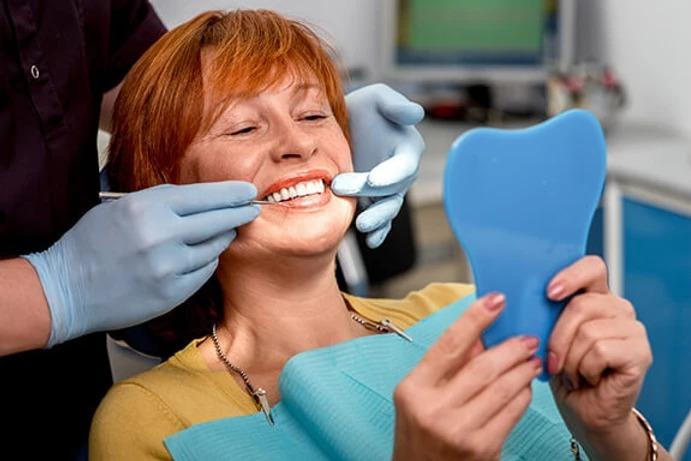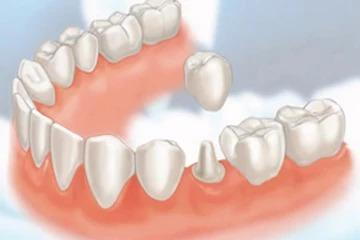
Taking proper care of your mouth, teeth, and gums is essential to maintaining good overall health. Establishing good oral hygiene habits such as regular brushing, flossing, and trips to your dental care professional are all necessary to prevent disease and decay from entering this window to the rest of your body.
Your mouth is a gateway to the rest of your body. If left unchecked, disease and decay that starts in the mouth can spread to the rest of the body and cause more severe health issues such as diabetes, chronic inflammation, and even heart disease. Learning to proactively care for your teeth and deal with any problems that arise is essential.
Sometimes, even with proper nutrition and excellent hygiene habits, dental issues do come up that need attention. Food particles and other bacteria that are present in the mouth form a sticky substance called plaque, which settles in hard to reach places near the gums and in the back of the mouth. Over time, even with proper brushing and flossing some plaque can remain and cause worse issues. It then can harden into an even tougher substance to remove called tartar. Eliminating tartar is one of the most uncomfortable parts of any dental visit, dental professionals must use scraping tools and other abrasive substances to eradicate it. If tartar is left unchecked, it can wear the surface of a tooth down and cause decay.
Cavities--Why They Need Attention
Teeth are composed of several layers--the enamel, or outer surface of the tooth, dentin, a softer tissue found underneath the layer of enamel, and the pulp, or the part of the tooth that connects to the roots and jawbone with an intricate system of nerves and other soft tissues. Once decay has started on the surface of a tooth, it will continue to wear away the outer layers, making its way into the soft tissues and, eventually, the root system of a tooth.
As the decay continues, the cavity becomes an entrance for bacteria and other infections to infiltrate the more sensitive soft tissues and root tissues of teeth, making more than just the tooth susceptible to disease and infection. Teeth become more sensitive as decay settles into the delicate soft tissues, making it painful to eat and drink. Cavities need attention before a tooth becomes sensitive, as the sensitivity also indicates that other areas of the mouth and gums are being affected.

Why Do I Need A Filling? What Is A Dental Filling?
Barraged continuously with acids from foods and other bacteria, our teeth over time, can break down the enamel and cause damage to teeth and surrounding tissues. If this injury continues over time, a hole in the surface of the tooth will form and become larger as the decay process continues. Fillings are needed to strengthen the tooth again and to create a protective barrier against further decay and infection.
A filling is a therapeutic compound that is inserted in and around compromised teeth to strengthen and protect damaged tissues. Fillings can be metal or composite, with the latter being more aesthetically pleasing when placed in a tooth. With this procedure, additional drilling and cleaning of the affected area may be needed to enhance the strength of the added restorative material. In such cases, a local or topical anesthetic may be applied to make the patient more comfortable during the procedure. A tooth may require this treatment for many reasons:
When the function of a tooth has been compromised due to decay
When an area of the mouth has become sensitive to hot, cold, or sweet substances
When localised pain does not subside; when there is persistent pain that indicates infection and decay have spread to soft tissues in the mouth
When decay is visible, and the patient wishes to have a more aesthetically pleasing smile
Fillings are intended to halt further decay and to strengthen damage to teeth. If it is determined that decaying areas of the mouth have progressed beyond what a filling could correct then it could require a more comprehensive procedure such as a crown.

What Is A Dental Crown? Why Would A Crown Be Necessary?
A crown is a tooth-shaped “cap” that is placed over a damaged tooth to repair its structure and improve its strength and appearance. A crown is necessary to strengthen a weakened area of the mouth due to decay and damage, to restore a tooth that has been broken or cracked, or to support a tooth with large fillings where there is not a lot of original tooth structure left. In addition, crowns can perform the following functions:
To hold a dental bridge in place across formerly damaged areas of the mouth
To cosmetically improve the appearance of teeth
To cover implants
Crowns are a restoration procedure and are typically only performed when other methods of repair and restructure are not possible. Crowns can be temporary or permanent, depending on what is needed, and they are often produced from materials such as gold, resin, porcelain, or zirconium. The typical life of a crown is between 10 and 15 years, depending on the kind of wear and tear to which it is subjected. The process of placing a crown is a challenging, not to mention quite costly. When considering this type of repair, it is necessary to look at the conditions that created the need for this kind of procedure. Many times, proactive dental care will reduce the need for more costly procedures.
Proactive Dental Care Is The Best Preventative Medicine Establishing good oral care routines at home, as well as maintaining a consistent schedule of visits to your dental professionals, is the best way to ensure that you don’t have to endure painful and costly dental procedures. If you do need dental repair and restoration, Dr Krueger and his team of dental professionals are fully prepared to handle your case with the care and expertise required to solve any discomfort you may be experiencing. Contact them with any questions and concerns that you may have about your dental health at https://www.gordonekruegerdds.com, and look forward to achieving a healthier smile!








